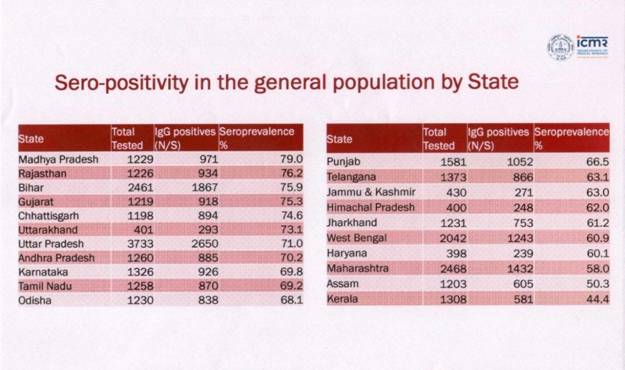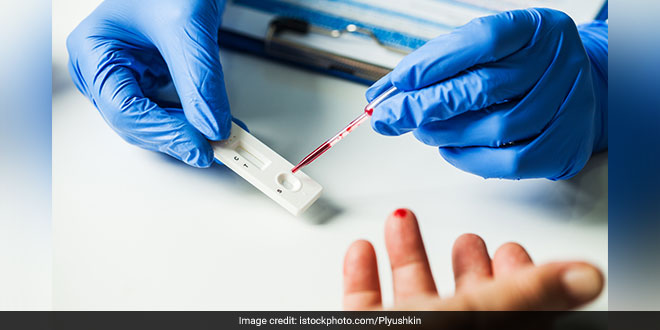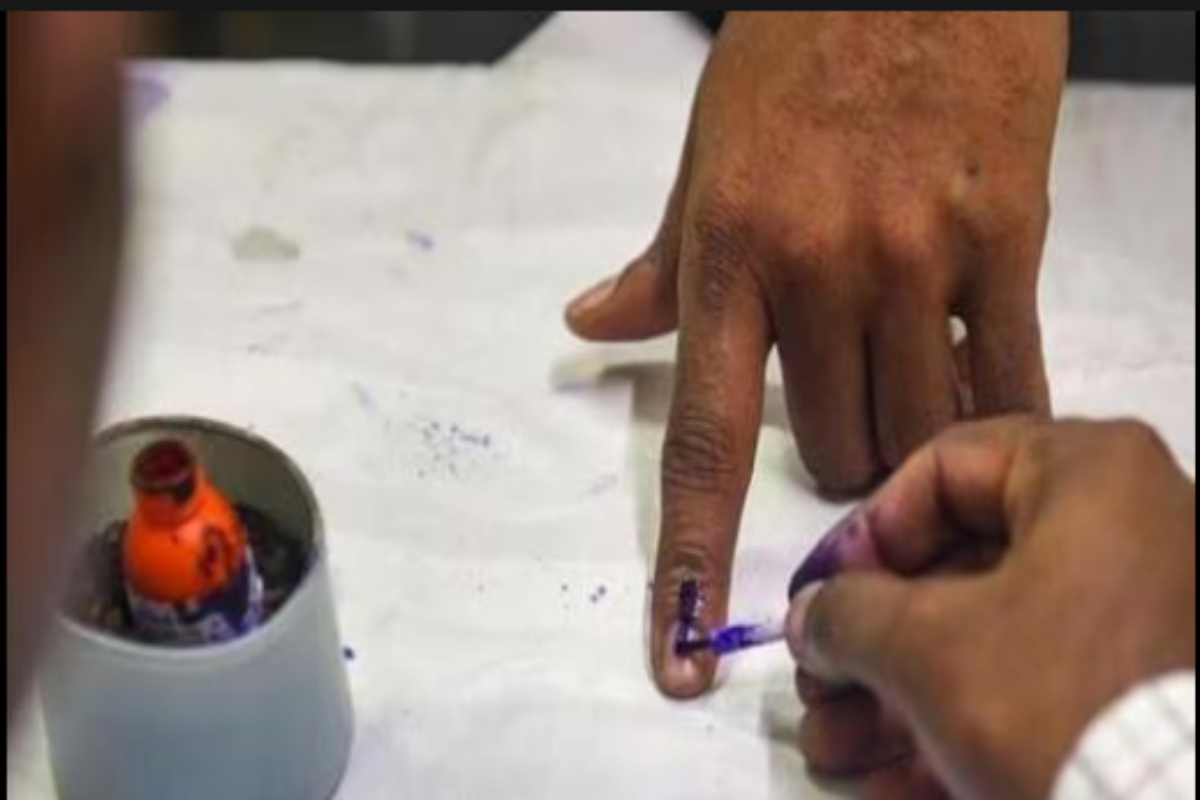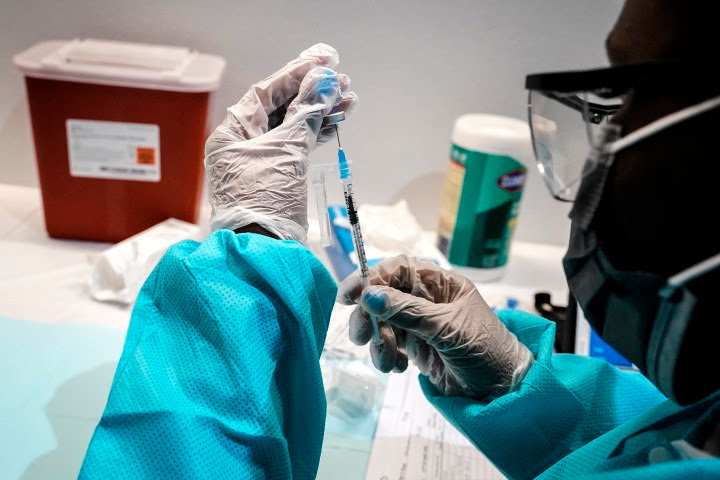According to the findings of a serosurvey done by the Indian Council of Medical Research (ICMR), Madhya Pradesh has the greatest seroprevalence in India (79%) followed by Rajasthan with 76.2 per cent and Bihar with 75.9 per cent and Kerala has the lowest (44.4%) preceded by Assam (50.3 per cent) and Maharashtra (58.0%).
Seroprevalence was found to be 75.3 per cent in Gujarat, 74.6 per cent in Chhattisgarh, 73.1 per cent in Uttarakhand, 71 per cent in Uttar Pradesh, 70.2 per cent in Andhra Pradesh, 69.8 per cent in Karnataka, 69.2 in Tamil Nadu and 68.1 per cent in Odisha.

ICMR’s sero-survey.
Also read: Cloud bursts near Amarnath cave, three SDRF teams deployed; no casualties reported
What is Seroprevalence?
Seroprevalence is the percentage of people in a population who have antibodies to an infectious pathogen. Antibody tests are used in a seroprevalence study to estimate the percentage of people in a population who have antibodies to SARS-CoV-2. This can tell us how many persons in a population have been infected with SARS-CoV-2 earlier.
Survey in 70 districts across country:
The survey, which took place between June 14 and July 6 in 70 districts across the country, indicated that Covid antibodies are present in at least two-thirds of the population in 11 states.
It is important to note that this was the fourth round of the nationwide serosurvey conducted by ICMR.
Also read: Mira Rajput’s parents are proud as they spot her poster in a mall
MoH recommends states to prepare data at district level
In light of the findings, the Ministry of Health has recommended states and union territories to undertake their own seroprevalence surveys in collaboration with the ICMR to ensure that they follow a standardised approach.
“The results of such surveys can therefore be used by governments to drive an objective, transparent, and evidence-based public health response to COVID-19 rapidly. The ICMR’s countrywide sero-survey was aimed to determine the amount of Covid infection across the country. Therefore, the national serosurvey results do not reflect the heterogeneity of seroprevalence between districts and even between states,” a statement said.
Also read: HOROSCOPE TODAY- 29 July 2021:Check Your Astro Prediction
Findings do not reflect the heterogeneity of seroprevalence:
The ICMR serosurvey was studied to evaluate the prevalence of Covid-19’s transmission across the country. As a result, the survey’s findings do not reflect the heterogeneity (variety) of seroprevalence across districts, let alone states.
Largely expected results:
A professor of Physics and Biology at Ashoka University, Gautam Menon, told India Today, “These results are largely as expected. I note that Kerala, a state which has not hesitated to enforce rigorous measures to enforce distancing, has relatively low seroprevalence compared to all other states.”
“Since this is, after all, a survey conducted only on 70 districts of the 700-odd districts India has, understanding how much seroprevalence might actually varies between districts awaits more detailed studies and would be crucial to understanding the impact of future waves,” Professor added.












